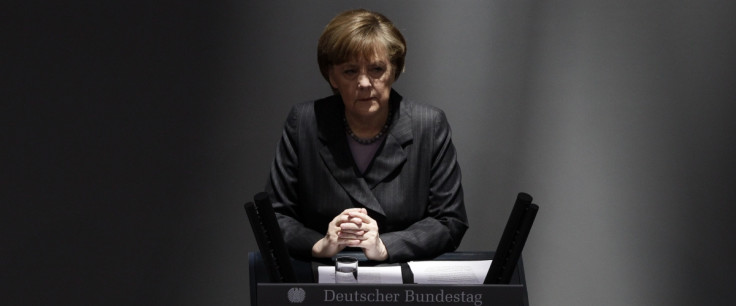German Chancellor Angela Merkel: Russia Faces 'Massive Damage' Over Crimea Invasion

German Chancellor Angela Merkel has warned Russia that it would face "massive damage" if it continues on its course over Ukraine.
Following the EU approval on a framework of sanctions on Russia, Merkel, who expressed reservations about tough measures against Moscow, told the German Bundestag that the EU was poised to impose sanctions on Russia.
"If Russia continues on its course of the past weeks, it will not only be a catastrophe for Ukraine. We would not only see it, also as neighbours of Russia, as a threat. And it would not only change the European Union's relationship with Russia.
"No, this would also cause massive damage to Russia, economically and politically," she said.
The EU sanctions, which join similar measures taken in Washington, include travel bans and asset freezes on an undecided list of people and firms accused of violating the territorial integrity of Ukraine.
US president Barack Obama, who met Ukrainian prime minister Arseniy Yatsenyuk, called Russia's incursion into Crimea a violation of international law and said the US and the EU "will be forced to apply a cost".
Russian troops have seized control of the semi-autonomous region of Crimea and separatists have taken over the local government, launching a controversial referendum on Sunday to secede from Kiev rule and join Russia. Ukraine's interim government has called the 16 March referendum illegal, as have the US and EU.
The regional parliament declared independence from Ukraine ahead of the vote.
The EU measures will likely have a greater impact on Russia than the American ones, considering that the continent's €335bn (£280bn, $467bn) of trade with Russia in 2012 is worth about 10 times that of the US.
Europe buys most of Russia's oil and gas exports, with Germany, Italy and France being the top importers. Russian government officials and businessmen are getting ready for Iran-like sanctions, according to a Bloomberg report.
The ruble dropped 9.8% against the dollar this year and the yield on Russia's February 2027 ruble bond was unchanged from the record-high close of 9.36%.
The US Senate approved the worst sanctions since the end of the Cold War and a bill authorising $1bn in loan guarantees to Ukraine's new government.
However, it did not approve measures against Russian banks or energy companies.
The EU's three-step sanctions process against Russia starts with the suspension of trade and visa-liberalisation talks. Stage two features the asset freezes and travel bans. The third step include unspecified "additional and far-reaching consequences", which may include freezing Russia's foreign serves, banking assets and halting lending to companies.
© Copyright IBTimes 2025. All rights reserved.




















